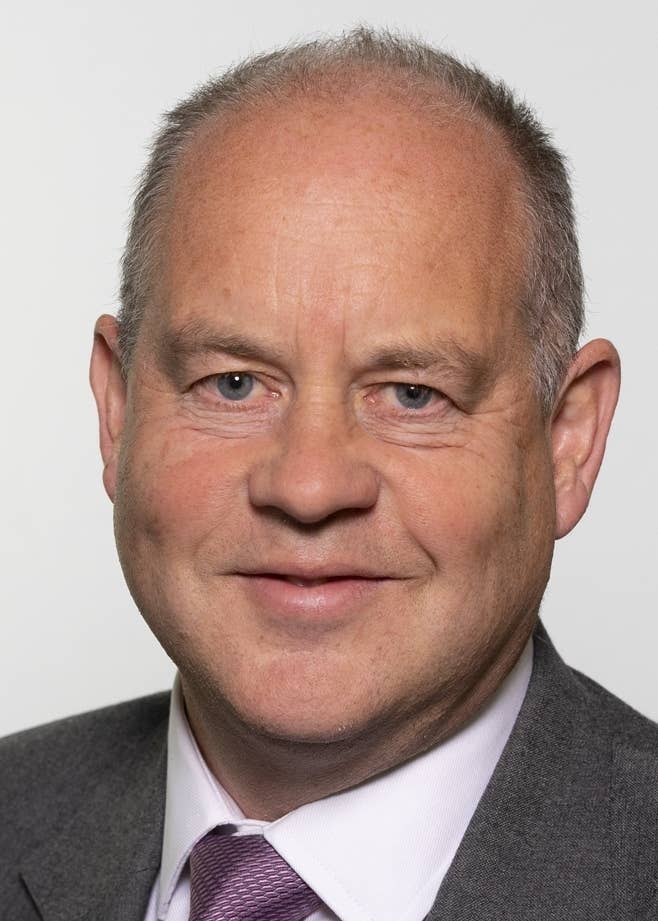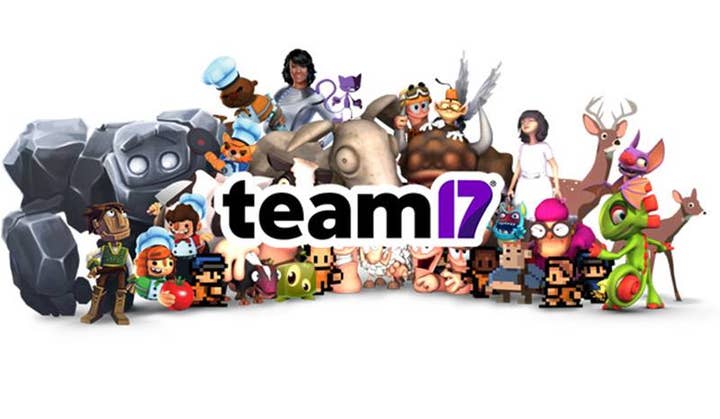What will the next UK gaming IPO look like? | Opinion
Liberum's Andrew Bryant reflects on the flood of floatations in the last two years, and discusses why the next will need to be different
2018 saw a flurry of computer gaming IPOs as UK fund managers returned to look at a sector they had written off a few years earlier.
At that time, the sector had largely sold itself on the mobile app gold rush, with all the risks associated with backing young companies in an emerging sector. Last year, investors began to buy in to something that Frontier Developments had been talking about to the UK stock market for a few years: that the global investment in broadband, mobile networks and cloud delivery infrastructure had enabled game developers to disintermediate old supply chains and deliver software-based products direct to consumers.
Online digital distribution had removed the physical retail barrier-to-entry and a supply chain that investors knew left a UK developer with lower margins, potential stock risk and the uncertainty of sitting at the back of a supply chain under retail and publishing heavyweights.

The digitisation and globalisation of the computer game supply chain, driven by cloud-based distribution, was transformative; not only for the channel to market, but also for the economics and enhanced opportunity to build long-term relationships with customers. Investors already well understood the growth and value of ecommerce and had seen the sky-high valuations paid for innovative software companies. They simply needed re-awakening to the fact that game developers are some of the best B2C software and ecommerce companies in the world.
What they then found was an explosion in the number of global consumers playing games, and the massive shift in economics as studios swapped a disproportionately low percentage of the selling price for very high margins on their "digital goods". Most importantly, they were now no longer being asked to invest in new managements teams building mobile freemium games, but were meeting industry veterans who had been building successful AAA games for decades. Investors had found what they were looking for in any sector -- world-class management running businesses at an industry inflexion that could go on to deliver multi-year growth in profits and cash.
Since then the likes have David Braben, Debbie Bestwick, Carl Cavers and Frank Sagnier have not disappointed. Frontier Developments, T17, Sumo Group and Codemasters have all made money for investors; and in their own unique ways, they have all delivered parts of the playbook which investors look for.
Team 17 has built a track record of delivering much faster profit growth than forecast; Frontier has launched big, successful own and licensed IP games; Codemasters has moved further into mobile with NetEase and structure a great-looking acquisition; while Sumo Group has recently become the second listed UK company to attract Tencent as a shareholder. On average these companies have delivered over 60% returns in 2019, and in many cases much bigger returns since IPO. Nor is this momentum slowing down; over the last few weeks UK and US institutional shareholders have pumped a further £100 million into the sector in sell-downs and acquisition finance.
Sizeable returns in the UK gaming sector
| IPO date | IPO price (p) | Start of 2019 price (p) |
Today price (p) | Upside since IPO |
Upside YTD | |
| Codemasters | 1/6/18 | 200 | 162.5 | 237.5 | 18.8% | 46.2% |
| Frontier | 26/7/13 | 127 | 756.0 | 1,220.0 | 860.6% | 61.4% |
| Team17 | 25/5/18 | 165 | 217.0 | 335.0 | 103.3% | 54.5% |
| Sumo | 19/12/17 | 100 | 122.5 | 154.3 | 54.3% | 25.9% |
| Keywords | 10/7/13 | 123 | 1,090.0 | 1,391.0 | 1,030.9% | 27.6% |
| Gfinity | 22/12/14 | 17 | 7.0 | 4.3 | -74.7% | -38.7% |
| Bidstack | 19/9/18 | 6 | 4.8 | 17.5 | 191.7% | 268.4% |
| Average: | 312.1% | 63.6% |
Source: Liberum, Factset
While the AAA developers have certainly delivered for shareholders, one of the stand-out performers since IPO has been Keywords Studios. Keywords doesn't develop games, but provides all the tools and services to help build them. Their key has been outstanding acquisition execution, which has seen their stock market value rise to around £1 billion. From an investor perspective, in London there are a handful of technology specialist funds that really research, understand, and back game developers; there are a much broader range of small and midcap funds that allocate around 20% of their portfolios to technology investments, and want to get involved.
"It will be challenging for a company that makes dinosaur, cooking or racing games -- or has a work for hire business model -- to differentiate their strategies... The next IPOs will need to be different"
However, as these funds get larger, the majority of professionally-run pension fund and ISA money is steered towards holdings in companies that deliver predictable -- and often lower -- growth in profits, backed by cash and dividends. Keywords, under the direction of Andrew Day, has delivered exactly that, driven by the underlying c.10% growth in the gaming market and a series of acquisitions that have consistently doubled that growth.
Interestingly, that throws up the questions of what future IPOs will look like and where they'll get their funding from. Brokers, PR companies and management teams have already pitched to target investors the merits of the current quoted sector players, leaving portfolio managers feeling they must already own the best game developer or best services company. So it will be challenging for a company that makes dinosaur, cooking or racing games -- or has a work for hire business model -- to differentiate their strategies. At the very least, those companies will need to be realistic about taking a lower IPO valuation multiple than those existing companies that have built a track record of trust.
The next IPOs will in all likelihood need to be different. In game development that could simply be different geographies; we've met gaming companies in Europe with great talent which are making good games, some of which have a few global partnerships but lack the same go-to-market publishing know-how as established players. Combining lower cost talent pools with publishing skills and relationships could deliver a very powerful equity story, either as a standalone company or, more likely, the opportunity to roll-up a number of studios across Europe. Strangely, we also meet US games developers eyeing the capital and valuations on the London Stock Exchange.

Today there are no quoted gaming companies with any material financial exposure to the mobile segment, although Codemasters has the F1 app and an intriguing deal with NetEase. We've met UK developers that are building big and valuable companies in the mobile space off the back of customer acquisition know-how, licensing brands and making great games. The UK investor education required will be harder in the mobile space, but we believe there is a gap for a successful IPO for a mobile games company that can demonstrate innovation, alongside a smooth track record of growth.
It's also possible we may see more tech-related gaming IPOs. London-quoted Bidstack has built a following with an in-game advertising platform, and we have met companies using blockchain in a number of ways; the most interesting to us is the opportunity to create a secondary market in assets that gamers create when playing management and simulation games for example.
There will also be more attempts to IPO esports companies or teams to sit alongside Gfinity. While this market is exploding, the challenge in pitching to investment funds like Blackrock, Fidelity and Hendersons is trying to identify the long-term financial model with most of the revenue today seeming to be based around ticketing income, TV rights and prize money.
Equally, as we have highlighted, Keywords has been a great success and there is a big weight of investor money looking for these services plays. Many investors made their money in the dotcom boom by owning the service providers such as data centres and IT companies, not by trying to pick the winning brands. This philosophy remains intact for many funds today.
It is harder for us to work out what these companies might look like but it could be a new gaming engine, an infrastructure operator, a payments provider or even simply a site that helps build a community. It's clear that the gaming sector is going to go through another big change with new consoles, streaming and players being encouraged to participate across a wider range of devices. All of this throws up a lot of opportunity for companies that can simply facilitate this.
What we will definitely see is more mergers and acquisitions. Recently Codemasters acquired Slightly Mad Studios, with Team 17 and Sumo also actively looking for deals. The easy option for a good gaming company looking to cash-in is to sell to one of the quoted players. There's plenty of private equity money for those founders looking to de-risk; but it will be interesting to see which entrepreneurs back themselves and their teams to look at an IPO which ultimately allows them to retain their culture, attract long-term shareholders to keep funding them with permanent capital, and still combine the benefits of a sell-down on IPO, all whilst riding the valuation uplift from ongoing gaming success.
Andrew Bryant is the sector analyst for Gaming and Technology at investment banking and research firm Liberum.








